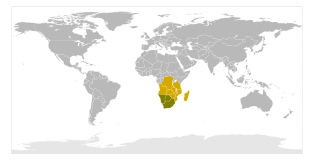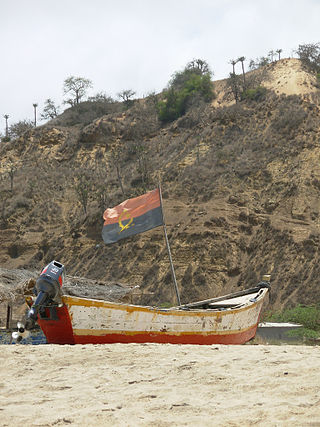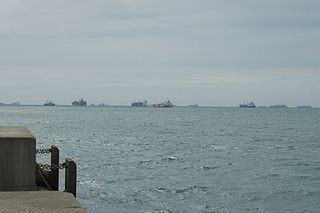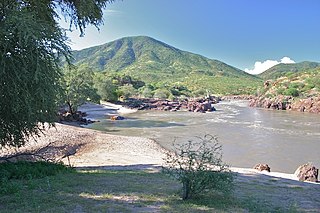
United Nations Security Council resolution 1173, adopted unanimously on 12 June 1998, after reaffirming Resolution 696 (1991) and all subsequent resolutions on Angola, particularly Resolution 1127 (1997), the council announced its intention to impose further sanctions against UNITA for non-compliance, unless it co-operated to extend state administration throughout the country.
The 2000s in Angola saw the end of a 27-year-long civil war (1975–2002) and economic growth as foreign nations began to invest in Angola's untapped petroleum reserves. The government continues to resettle internally displaced persons as its economy recovers and expands.

United Nations Security Council resolution 864, adopted unanimously on 15 September 1993, after reaffirming resolutions 696 (1991), 747 (1992), 785 (1992), 793 (1992), 804 (1993), 811 (1993), 823 (1993), 834 (1993) and 851 (1993), the Council noted the continuing situation in Angola and went on to condemn and place international sanctions on UNITA.

United Nations Security Council resolution 890, adopted unanimously on 15 December 1993, after reaffirming resolutions 696 (1991), 747 (1992), 785 (1992), 793 (1992), 804 (1993), 811 (1993), 823 (1993), 834 (1993), 851 (1993) and 864 (1993) on the situation in Angola, the council noted the slight improvements in the country and extended the stationing of the United Nations Angola Verification Mission II until 16 March 1994.

United Nations Security Council resolution 1295, adopted unanimously on 18 April 2000, after reaffirming Resolution 864 (1993) and all subsequent resolutions on Angola, particularly resolutions 1127 (1997), 1173 (1998) and 1237 (1999), the Council authorised a tightening of sanctions against UNITA and established a panel of experts to investigation violations of Security Council resolutions imposing measures against UNITA.

United Nations Security Council resolution 1237, adopted unanimously on 7 May 1999, after reaffirming Resolution 696 (1991) and all subsequent resolutions on Angola, particularly resolutions 864 (1993), 1127 (1997), 1173 (1998) and 1229 (1999), the council established expert panels to investigate violations of measures imposed against UNITA.

United Nations Security Council resolution 1176, adopted unanimously on 24 June 1998, after reaffirming Resolution 696 (1991) and all subsequent resolutions on Angola, particularly Resolution 1173 (1998), the Council suspended its intention to impose further sanctions against UNITA for non-compliance until 1 July 1998.

United Nations Security Council resolution 922, adopted unanimously on 31 May 1994, after reaffirming Resolution 696 (1991) and all subsequent resolutions on Angola, the council discussed the peace process during the civil war and extended the mandate of the United Nations Angola Verification Mission II until 30 June 1994.
United Nations Security Council resolution 932, adopted unanimously on 30 June 1994, after reaffirming Resolution 696 (1991) and all subsequent resolutions on Angola, the council discussed the situation during the civil war and extended the mandate of the United Nations Angola Verification Mission II until 30 September 1994.

United Nations Security Council resolution 1087, adopted unanimously on 11 December 1996, after reaffirming Resolution 696 (1991) and all subsequent resolutions on Angola, extended the mandate of the United Nations Angola Verification Mission III until 28 February 1997.

United Nations Security Council resolution 1127, adopted unanimously on 28 August 1997, after reaffirming Resolution 696 (1991) and all subsequent resolutions on Angola, the council, acting under Chapter VII of the United Nations Charter, imposed sanctions on UNITA following the lack of compliance in implementing peace agreements after the civil war.

United Nations Security Council resolution 1135, adopted unanimously on 29 October 1997, after reaffirming Resolution 696 (1991) and all subsequent resolutions on Angola, the Council extended the mandate of the United Nations Observer Mission in Angola (MONUA) until 30 January 1998 and urged UNITA to comply with previous resolutions, particularly as sanctions were due to come into effect.

United Nations Security Council resolution 1202 was adopted unanimously on 15 October 1998, after reaffirming Resolution 696 (1991) and all subsequent resolutions on Angola, including Resolution 1196 (1998) on Africa. The council extended the mandate of the United Nations Observer Mission in Angola (MONUA) until 3 December 1998.

United Nations Security Council resolution 1336, adopted unanimously on 23 January 2001, after reaffirming Resolution 864 (1993) and all subsequent resolutions on Angola, particularly resolutions 1127 (1997), 1173 (1998), 1237 (1999) and 1295 (2000), the Council extended the monitoring mechanism of sanctions against UNITA for a further three months.

United Nations Security Council resolution 1348, adopted unanimously on 19 April 2001, after reaffirming Resolution 864 (1993) and all subsequent resolutions on Angola, particularly resolutions 1127 (1997), 1173 (1998), 1237 (1999), 1295 (2000) and 1336 (2001), the council extended the monitoring mechanism of sanctions against UNITA for a further six months until 19 October 2001.

United Nations Security Council resolution 1374, adopted unanimously on 19 October 2001, after reaffirming Resolution 864 (1993) and all subsequent resolutions on Angola, particularly resolutions 1127 (1997), 1173 (1998), 1237 (1999), 1295 (2000), 1336 (2001) and 1348 (2001), the council extended the monitoring mechanism of sanctions against UNITA for a further six months until 19 April 2002.

United Nations Security Council resolution 1404, adopted unanimously on 18 April 2002, after reaffirming Resolution 864 (1993) and all subsequent resolutions on Angola, particularly resolutions 1127 (1997), 1173 (1998), 1237 (1999), 1295 (2000), 1336 (2001), 1348 (2001) and 1374 (2001), the council extended the monitoring mechanism of sanctions against UNITA until 19 October 2002.

United Nations Security Council resolution 1412, adopted unanimously on 17 May 2002, after reaffirming resolutions 696 (1991), 864 (1993) and all subsequent resolutions on Angola, particularly Resolution 1127 (1997), the council suspended travel restrictions against UNITA officials the country after the signing of a memorandum of understanding between it and the Angolan government.

United Nations Security Council resolution 1432, adopted unanimously on 15 August 2002, after reaffirming resolutions 1127 (1997) and 1412 (2002), the Council extended the suspension of travel restrictions against UNITA officials in Angola for a further 90 days.

United Nations Security Council resolution 1448, adopted unanimously on 9 December 2002, after reaffirming Resolution 864 (1993) and all subsequent resolutions on Angola, particularly resolutions 1127 (1997), 1173 (1998), 1237 (1999), 1295 (2000), 1336 (2001), 1348 (2001), 1374 (2001), 1404 (2002), 1412 (2002), 1432 (2002), 1434 (2002) and 1439 (2002), the Council noted progress in the country and lifted remaining sanctions against UNITA, including an arms embargo, travel restrictions and the freezing of assets.













